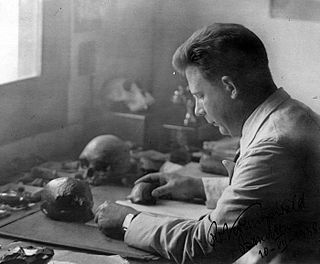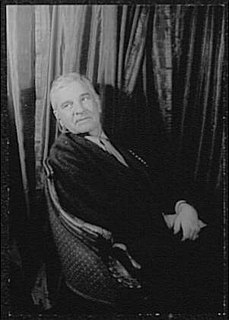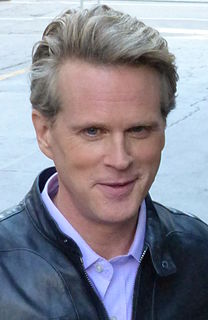A Quote by Henry Ford
Since we do not take a man on his past history, we do not refuse him because of his past history. I never met a man who was thoroughly bad. There is always some good in him if he gets a chance.
Related Quotes
Man did not address his inquiries to the earth on which he stood until a remarkably late stage in the development of his desire for knowledge. And the answers he received to the questions, "Where do I come from?", "What is man?", although they made him poorer by a few illusions, gave him in compensation a knowledge of his past that is vaster than he could ever have dreamed. For it emerged that the history of life was his history too.
The godly man contrarily is afraid of nothing; not of God, because he knows Him his best friend, and will not hurt him; not of Satan, because he cannot hurt him; not of afflictions, because he knows they come from a loving God, and end in his good; not of the creatures, since "the very stones in the field are in league with Him;" not of himself, since his conscience is at peace.
A man rising in the world is not concerned with history; he is too busy making it. But a citizen with a fixed place in the community wants to acquire a glorious past just as he acquires antique furniture. By that past he is reassured of his present importance; in it he finds strength to face the dangers that lie in front of him.
One can't prescribe books, even the best books, to people unless one knows a good deal about each individual person. If a man is keen on reading, I think he ought to open his mind to some older man who knows him and his life, and to take his advice in the matter, and above all, to discuss with him the first books that interest him.
Every man should write a brief history of his life: his parentage, his birth, his religion, when he was baptized and by whom, when ordained, what to, and by whom-give a brief sketch of all his missions and of all his official acts and the dealings of God with him. Then if he were to die and the historians wished to publish his history, they would have something to go by.
Do what he will, he [the profane man] is an inheritor. He cannot utterly abolish his past, since he himself is a product of his past. He forms himself by a series of denials and refusals, but he continues to be haunted by the realities that he has refused and denied. To acquire a world of his own, he has desacralized the world in which his ancestors lived; but to do so he has been obliged to adopt an earlier type of behavior, and that behavior is still emotionally present in him, in one form or another, ready to be reactualized in his deepest being.
God, Who is by nature good and dispassionate, loves all men equally as His handiwork. But He glorifies the virtuous man because in his will he is united to God. At the same time, in His goodness he is merciful to the sinner and by chastising him in this life brings him back to the path of virtue. Similarly, a man of good and dispassionate judgment also loves all men equally. He loves the virtuous man because of his nature and the probity of his intention; and he loves the sinner, too, because of his nature and because in his compassion he pities him for foolishly stumbling in darkness.
I was blessed enough to meet Pope John Paul when I was about 19 or 20 years old in the Vatican; I had that privilege, .. My mother took me to visit him and I remember distinctly his incredible charisma and personal charm and his warmth and compassion. You felt it immediately the minute you met him, and that spirit I came away with, having met the man, is something that I've been constantly working on to infuse the character with, so that we can have his spirit and his love and his compassion, because that's really the essence of the man.
What is a great man who has made his mark upon history? Every time, if we think far enough, he is a man who has looked through the confusion of the moment and has seen the moral issue involved; he is a man who has refused to have his sense of justice distorted; he has listened to his conscience until conscience becomes a trumpet call to like-minded men, so that they gather about him, and together, with mutual purpose and mutual aid, they make a new period in history.
History in Burckhardt's words is 'the record of what one age finds worthy of note in another.' The past is intelligible to us only in light of the present; and we can fully understand the present only in light of the past. To enable man to understand the society of the past and to increase his mastery over the society of the present is the dual function of history.




































